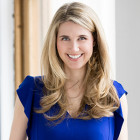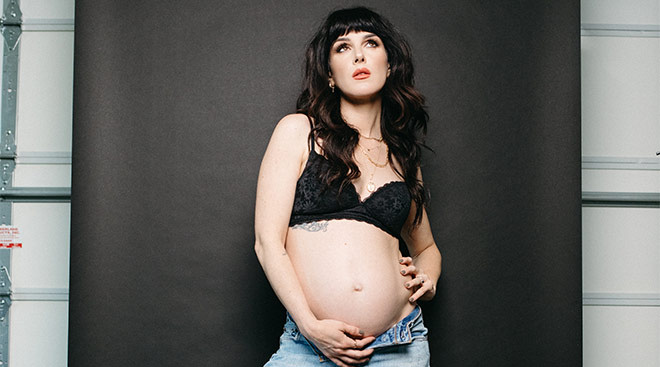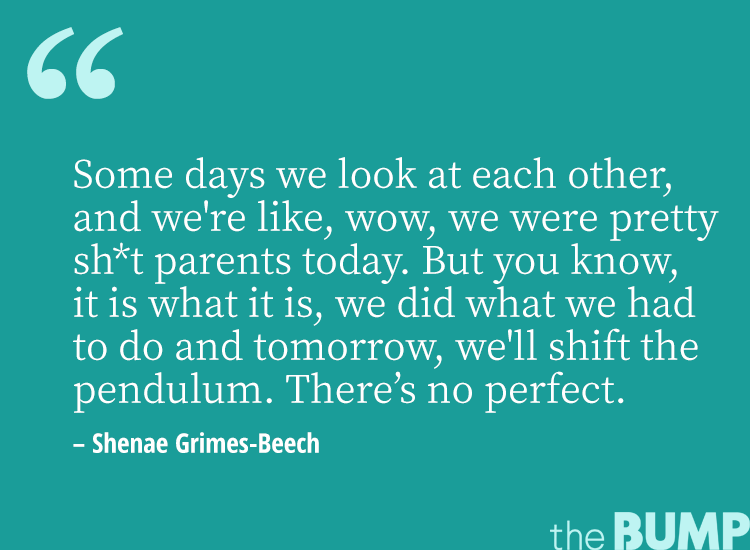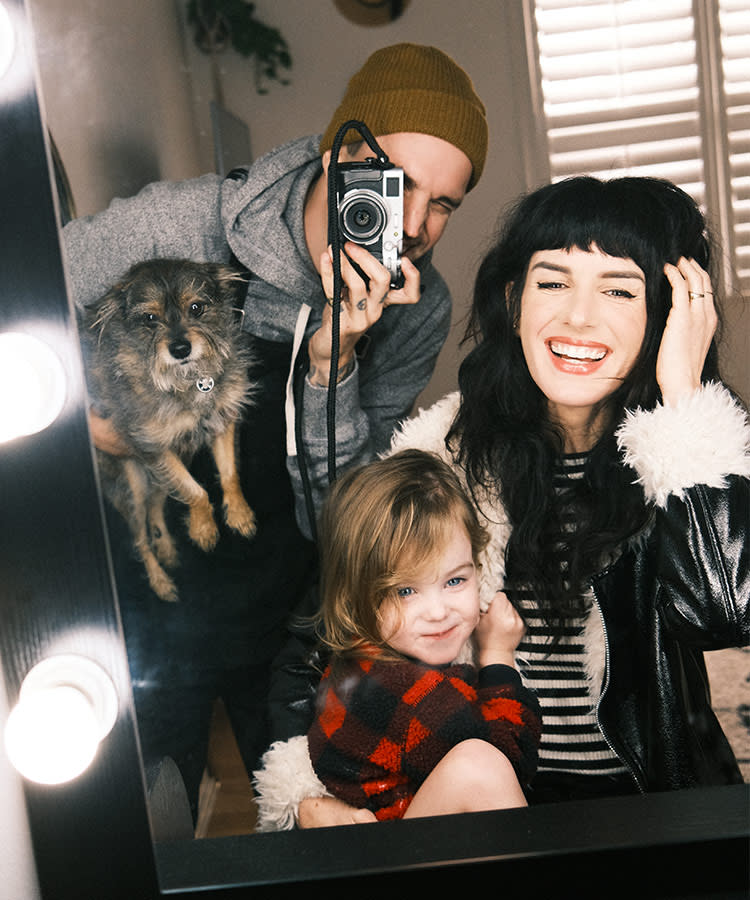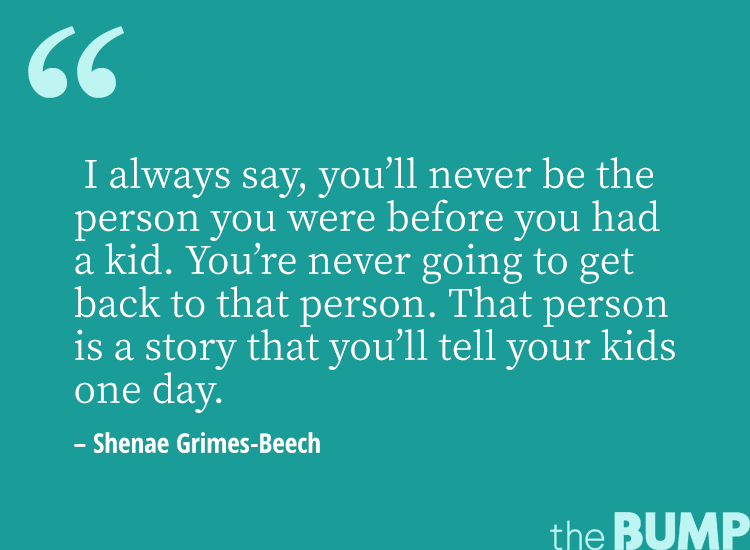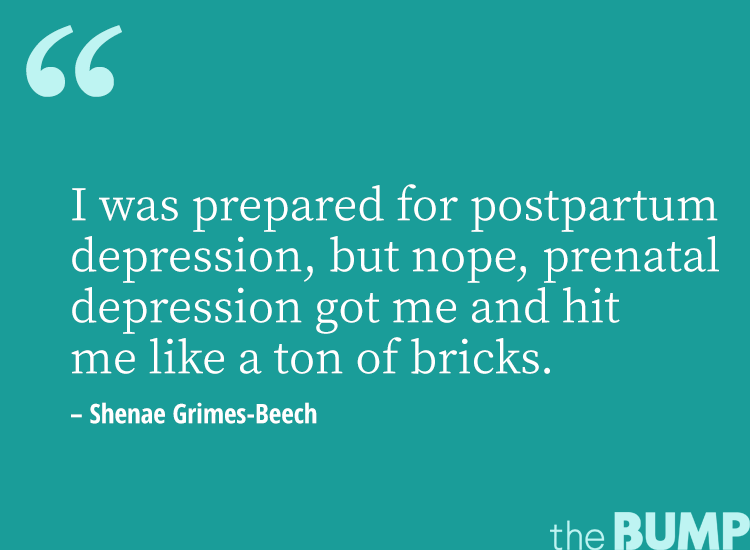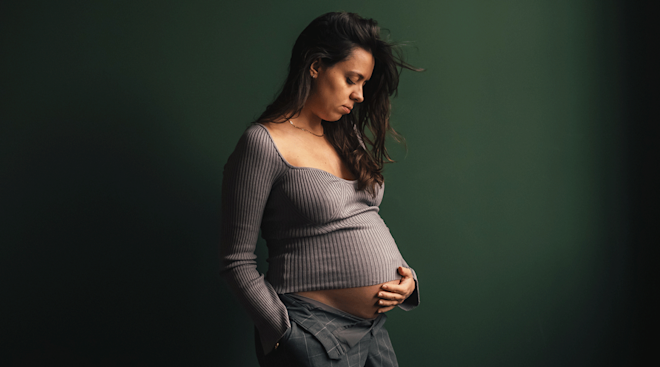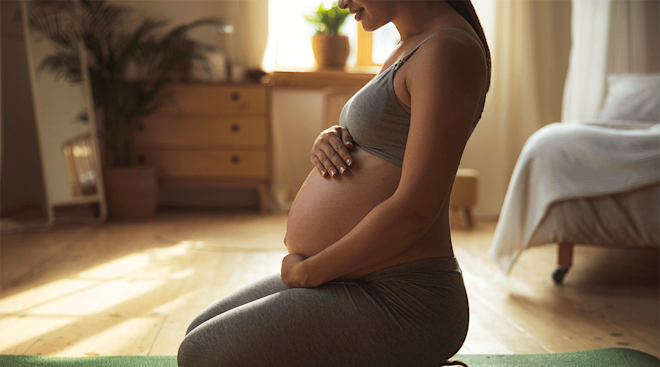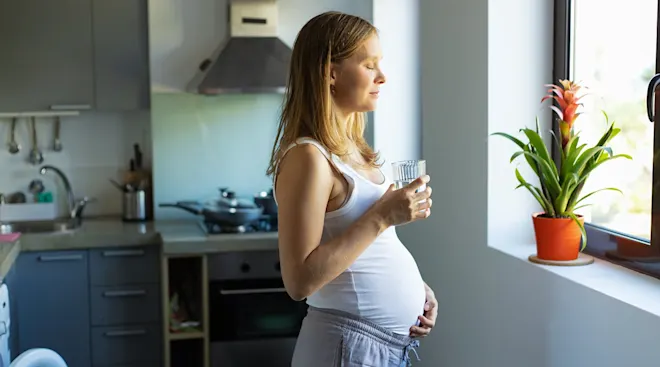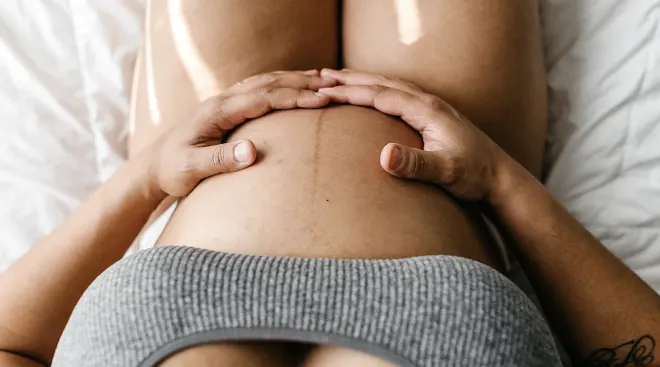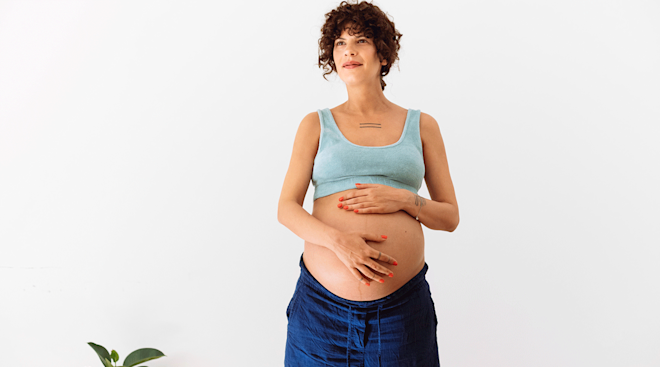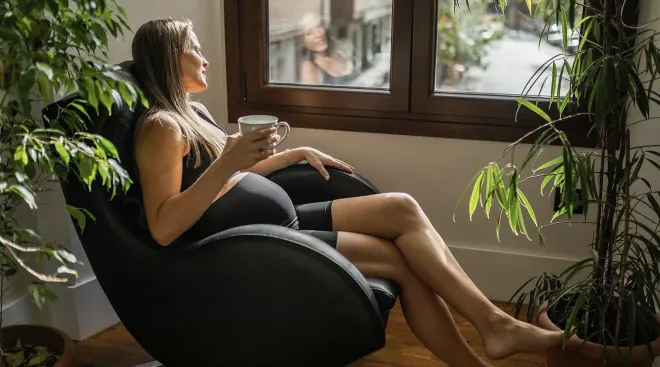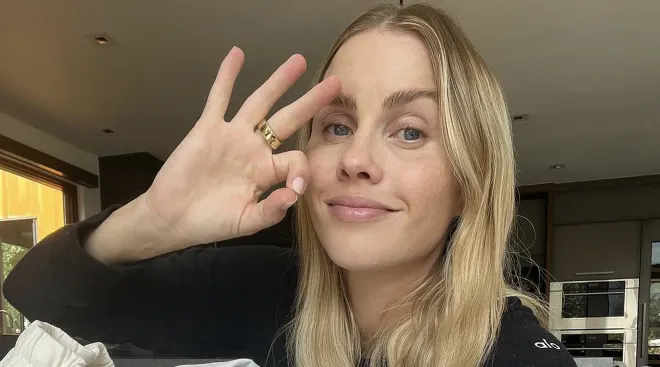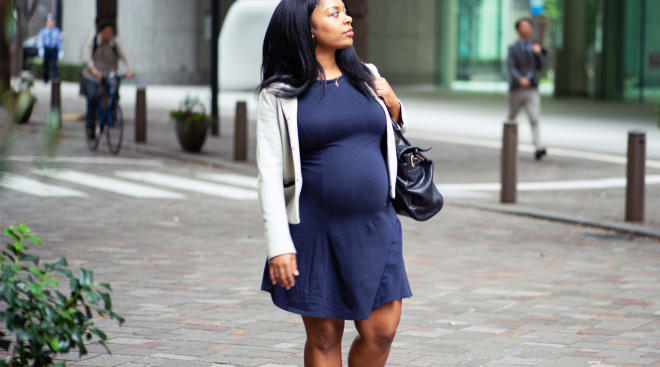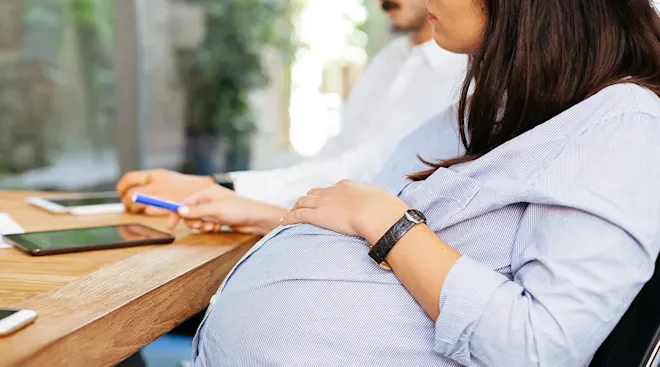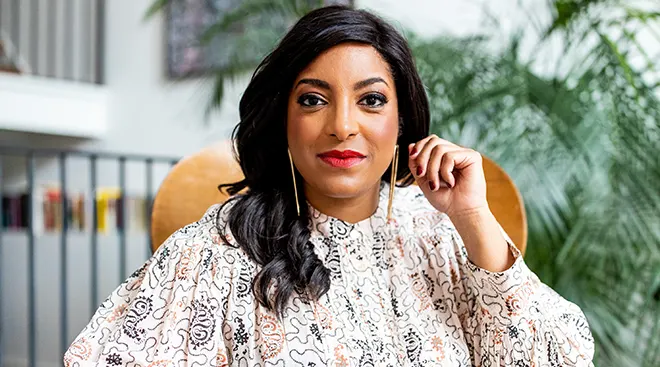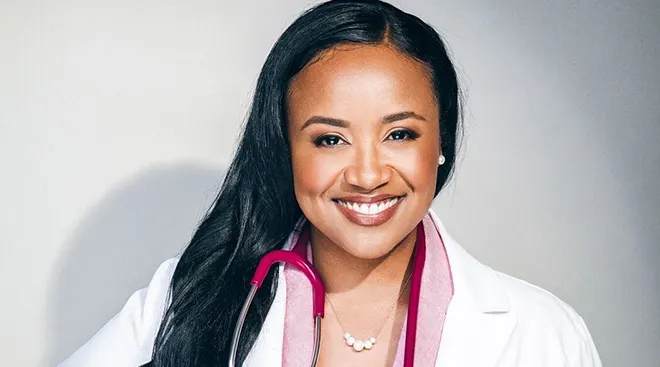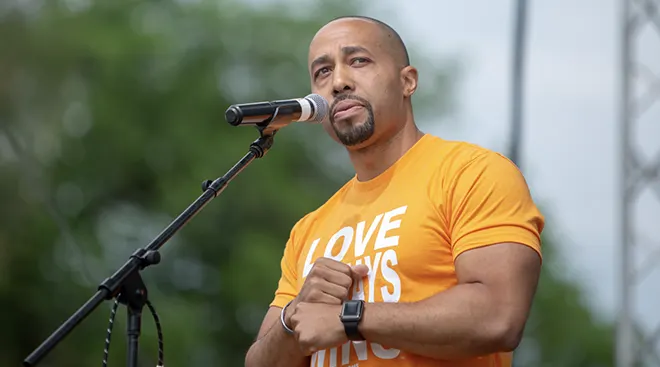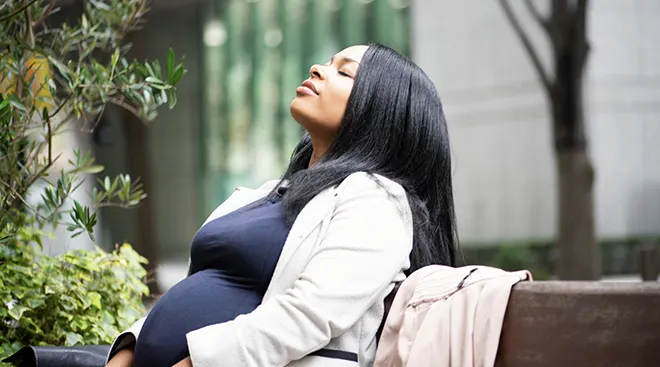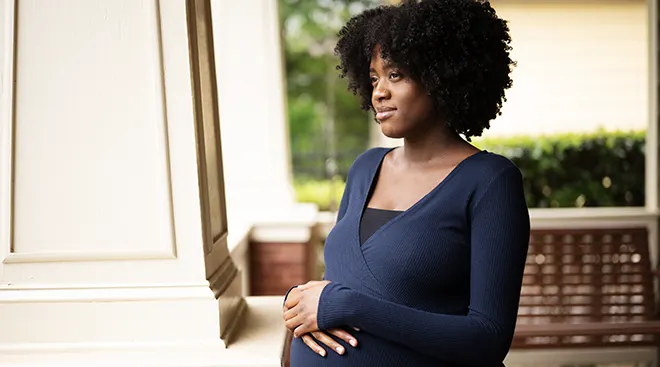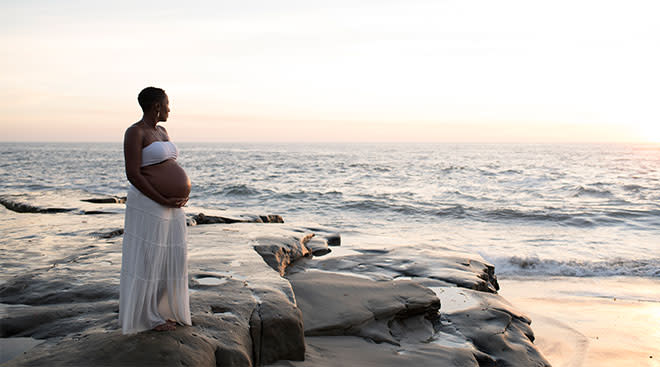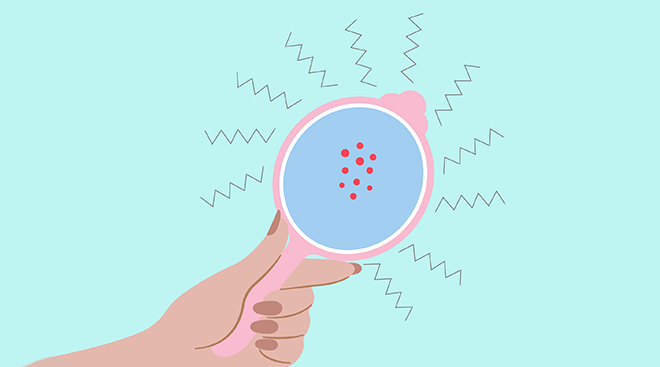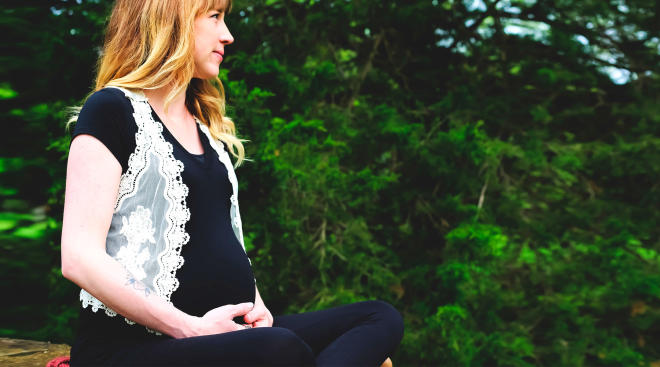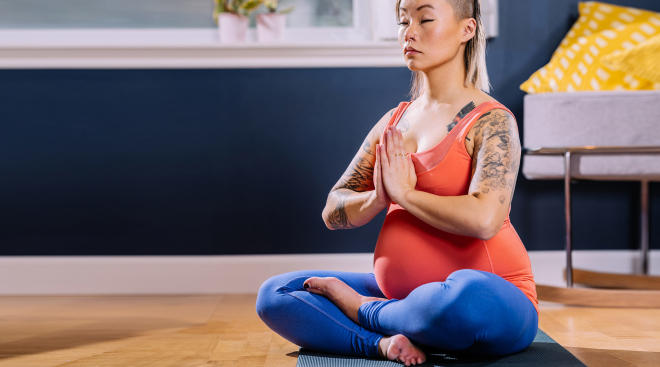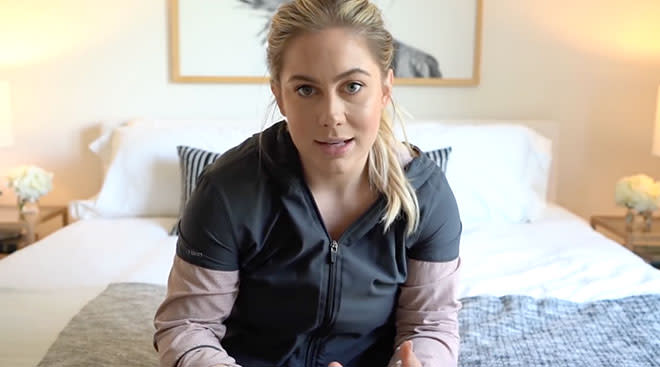Shenae Grimes-Beech on Combating the Pressures of ‘Perfect Motherhood’
Shenae Grimes Beech knows how to juggle. Okay not really, but she does know how to keep a lot of balls in the air. The actress, best known for her role as Annie Wilson on 90210, a spin off of the classic tv hit, Beverly Hills 90210, has a website, a YouTube channel and she just launched a podcast with her former co-star Annalynne Mccord called Unzipped (the first episode spills the tea on their longstanding feud!). Oh, and she’s expecting baby #2. She’s real and raw and stands up for what she believes in—and her audience is here for it. We caught up with the busy mom via Zoom to talk about “balance,” prenatal depression and what she’s looking forward to most the second time around.
The Bump: What has this pandemic meant for you? Do you think it’s changed your view of the “perfect mom”?
Shenae Grimes-Beech: I think I felt a lot of unknowing pressure. I was never the “mommy and me” mom, you know? I wasn’t going to go to playgroup—I had no interest in doing that. It really didn’t occur to me to do all of those things. But then, we’re all at home and you hear, oh, they’ve got their 8-month-old doing this craft or whatever, and you feel that pressure. And at the end of the day, we’ve all been in survival mode. We’ve gone over a year without childcare now. And I know for a lot of people, that’s their reality 24/7, pandemic or no pandemic. Losing childcare was tough—both of us were still trying to really hustle and make a living. My content creation took a massive hit for pretty much all of 2020. Fortunately, my husband’s work continued pretty steadily throughout the whole pandemic. I’m grateful for that. But trying to juggle it all is hell. Some days we look at each other, and we’re like, wow, we were pretty shit parents today. But you know, it is what it is, we did what we had to do and tomorrow, we’ll shift the pendulum. There’s no perfect.
TB: And now, a year in, what does balance look like for you?
SG: Oh there’s no day-to-day balance. The idea that I’m going to get everything done—I’m going to work out and I’m going to make sure that I do my 10-step skincare routine, and I’m also going to make sure that my kid knows her ABCs and that she’s eating a well-balanced meal for three meals a day, oh and I’m going to get work done and be the mom boss, and you know, have quality time with my husband—no. That does not happen. And if it does, it has never happened all in one day. I’m lucky if I pull off one of those things successfully. Balance comes in the big picture for us.
TB: Wait, so you haven’t been doing all the things, making crafts, and it’s all okay?
SG: Ha, exactly. No way! When this pandemic started, my daughter was just shy of a year and half. She had a few words but she wasn’t really speaking much. Now she speaks in full sentences and understands everything we say. It’s incredible. It’s not from doing the activities, or from being around kids in a preschool environment. It’s from literally including her in the household chores. I have to get laundry done so we do it. Chores were never intended to be an educational experience, but here we are. She’s such a happy kid and I think, you know what, I guess we’re not doing too bad, right? I’m proud of us. I think we project the flashcards and everything else on these kids, so I think the fact that she’s good is a really cool takeaway. When we do get back to normal, hopefully we’ll be a little more chill. Oh, and manners! This child, unprompted, is saying “no thank you” and “please.” It’s not something we beat her over the head with, but it’s the way we speak and she’s picked it up naturally by being at home with us. And when we’re out and about, she just comes out with it. Those moments are very proud moments for us. To see your kid out in the world, just being a little functioning member of society, I think, sh*t, we did that.
TB: How do you give yourself permission to create your own version of balance without guilt or shame?
SG: I try to remain really aware. If I were to take my kid to the park for two hours or go for a long lunch everyday, I’d be screwed workwise at the end of the week. And that would cause an immense amount of stress, which I would probably take out on my family. Not a nice thing for anyone. Similarly, if I’m not taking any time—if I’ve pushed off my workouts or my meditations—I am a much more unpleasant human being to be around. I don’t think people are trying to shame each other. I hope we’ve learned better by now. But I do think we shame ourselves too much. I believe that we’re doing our best, and I believe that our best is a pretty good job. I keep a running tally in my head: Okay, today was a “mommy and me” heavy day and we both loved it. And tomorrow I have a bunch of meetings and that’s okay too.
TB: In your experience, how has motherhood differed from what you expected?
SG: When I was pregnant with my daughter, I was on a show that was on hiatus. We were waiting to hear if we got picked up for the second season. I told my executive producer, I will be back on set two weeks after giving birth, six weeks max. Then I had my daughter and the show got cancelled. Biggest blessing ever. I would have never expected to be excited about news like that but I was. I was delusional to think I could go back to 16-hour days. I like being around my kid, I like watching her grow. I spent a lot of my own youthful years on tv sets working and I sort of feel like I missed chunks of my own life. I would be devastated if I missed chunks of my kid’s life. It’s so cliche, but they do grow so fast and change so quickly. They just go through these different phases, and they’re different versions of themselves all the time. My mom always worked, so I have a strong work ethic, but my mom was never the mom who could be at the field trip or the bake sale. I want to be there for my daughter and be accessible to her in that way. The Mom instinct kicked in way more than I expected.
TB: What does the idea of motherhood mean to you?
SG: I found my greatest purpose in life becoming a mom. But I found a secondary purpose in sharing my experiences in motherhood with other women. There is just a natural connection because you’re part of the same club. Motherhood is this amazing unifying lens. When I started sharing social issues on my platform, no one engaged with that content at all—hands off. And then I started talking about the same issues through the lens of motherhood and all of a sudden, the gates opened and everyone is putting their differences aside, coming together to support the root issue. I could get people thinking hard and talking about these things, because I brought it down, mother to mother, talking about a child, a universal child. I think we can all agree that the next generation deserves our best efforts, to do right by them and to provide them with equal opportunities.
TB: Let’s talk about baby number two. You’re due with a little boy soon. How has this pregnancy journey been different than your first?
SG: One of the biggest, most significant symptoms that I’ve had in both my pregnancies now is a bout of prenatal depression. It was gone by the second trimester both times. But this time I think it actually kicked in even before I realized I was pregnant. And it actually surprised me both times. With the first, I didn’t know what was going on. I chalked it up to first-time parent fear, like, can I really do this? Those anxieties are real and totally normal, but this felt more serious and deep. The second time around I knew I was capable of being a parent and I was excited. I really thought I would be in the clear. And sure enough, before I realized what was happening, there it was again. I really wasn’t expecting to have it both times. I want to bring awareness to this because it does happen. I’m not a scientist or a doctor, but I have to believe that if postpartum depression is caused by a hormonal shift after no longer being pregnant, there has to be a hormonal shift in becoming pregnant. I just want someone else to know that if they’re feeling this way that it’s happened to other people too. You’re not alone in this feeling.
TB: What were some of your symptoms?
SG: I’ve had anxiety my whole life. I’m a very high strung, anxious person. I’m very go, go, go—I need to do more and more and more, and my mind races. I knew this was different because during the first trimester of both of my pregnancies, I didn’t want to get out of bed, but not because I was so exhausted. I would fall in and out of sleep. I would wake up and I would sob. I felt like absolute garbage and did not want to be around my husband or my daughter. Given my anxiety, I was prepared for postpartum depression, but nope, prenatal depression got me and hit me like a ton of bricks.
TB: Postpartum depression is slowly becoming less taboo. How do we normalize prenatal depression, or mental health for women in general ?
SG: Because I’ve had anxiety my whole life, I was so sure that I was going to have postpartum depression. That’s actually why I sought the therapist, because I was like, well, sh*t, I’m already feeling crazy, what the hell is going to happen to me after the kid’s born? I was terrified. And there are so many levels of severity, but it doesn’t have to be that severe for you to warrant or be deserving of help. There’s such an expectation on women to be overjoyed that they’re pregnant. It’s a blessing, and I don’t want to take away from that at all. But you can still be “#blessed” and depressed and experience those two things simultaneously. I think the guilt associated with both prenatal and postpartum is what leaves these things untreated, and leaves women feeling completely alone and isolated in their feelings.
TB: Do you think the pressure of “perfect motherhood” starts early?
SG: I know it’s hard for some people to get pregnant and that people would kill for a healthy pregnancy. But I’m entitled to own my feelings too.I always knew being pregnant was a miracle and a blessing, and I am very grateful. But I am a control freak, and my body not being just my own anymore is a really difficult thing for me to mentally digest. And then postpartum hits. You have to be overjoyed at the bundle of miraculous beauty in your arms. I think it stops people from speaking out and can make the feelings of depression so much worse.
TB: What are you most excited about when it comes to baby #2?
SG: I just love seeing their little personalities flourish. The first time is tough; every season is challenging, and it feels like it will never end. My mother told me, “just remember, everything is a phase. It will end and you’ll be onto something else, so try and enjoy it.” I thought she was crazy—it definitely didn’t feel like it was ever going to end. But now I have proof, right? With this one, I hope I can enjoy all of the seasons a bit more and really embrace them.
TB: What are your ultimate Mom goals?
SG: So for me, I am trying to find a balance—and I use that word very loosely. I want a mom life that can coexist with my professional, independent life. I’m still figuring out who I am as an individual. I always say, you’ll never be the person you were before you had a kid. You’re never going to get back to that person. That person is a story that you’ll tell your kids one day.
I swear like a sailor—I’m like a rock and roll girl, you know, I’m not a cookie-cutter mom. But here I am: a mom!
-
What’s your number one pregnancy craving? Meat. I was on a vegetarian diet for a year prior to getting pregnant and I am fully back on the meat train.
-
Pickles or ice cream? Pickles all day.
-
Fill in the blank—being a mom makes me feel: purposeful.
-
Fill in the blank—I couldn’t be a mom without: my husband. To have a partner in crime to share responsibility with saves my life most days. I think single parents are literally superhuman. They all deserve standing ovations in the street.
Please note: The Bump and the materials and information it contains are not intended to, and do not constitute, medical or other health advice or diagnosis and should not be used as such. You should always consult with a qualified physician or health professional about your specific circumstances.
Navigate forward to interact with the calendar and select a date. Press the question mark key to get the keyboard shortcuts for changing dates.
































